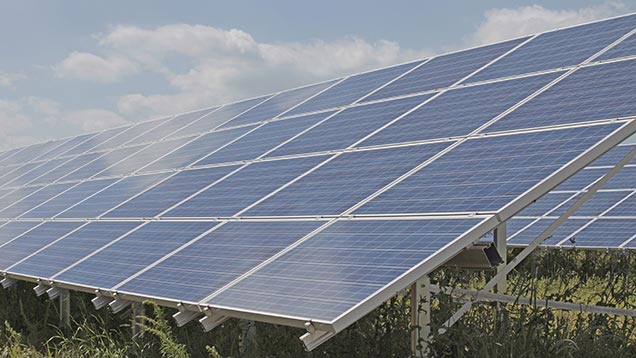Business Clinic: Inheritance tax on solar lease income explained
 (c) EcoImages/VIG/Rex
(c) EcoImages/VIG/Rex Farmers Weekly business adviser Mike Butler, partner at Old Mill, offers advice on inheritance tax related to solar lease income.
Q I have recently leased out some land to a solar developer for 25 years and have since found out this is likely to affect the tax relief available on my estate if I die before the lease is up and the land goes back into farming. How does this work and is there anything I can do about it?
Where land is leased to a solar power operator, it no longer qualifies for agricultural property relief (APR), so could incur inheritance tax of up to 40%.
With farm incomes under such pressure, and attractive deals available for solar developments, it’s hardly surprising that some farmers would prefer to lease the land and accept a regular rent, but anyone doing so must be aware of the fiscal implications.
A typical rent for solar panels would be £700-£1,000/acre, depending on location, and index-linked for 20 years.
As a rental activity rather than a trade, farmers should treat the income separately, as there is no requirement to account for national insurance on it.
However, the rental income will still accrue alongside other income, incurring income tax at the appropriate rate.
See also: Take care when choosing a solar developer
Although a 20-year rent of £1,000/acre may be attractive, it is important that farmers take account of the full picture. Let’s assume a rent of £1,000/acre is taxed at 40% – that makes the actual income £600/acre.
Over 20 years that would total £12,000. But the potential inheritance tax levy could amount to 40% – on a land value of, say £10,000/acre – that would equate to £4,000/acre in tax.
You therefore have to ask yourself whether the potential IHT exposure is worth the rental return.
Some farmers believe that by grazing sheep under the solar panels, they can retain APR, but that simply isn’t the case.
You have to remember that the occupant of the land is the tenant – for example, the solar company – therefore the primary occupation of the land is not farming, so it does not qualify for APR.
To mitigate the risk, farmers should consider taking out level-term life assurance to cover the potential IHT liability for the duration of the lease.
This is a very simple form of cover with no investment element and which would pay out a lump sum on death which can then be used to pay the IHT bill. In most circumstances the cost of the cover will be a fraction of the rent received and would be a small price to pay to provide peace of mind for this generation and the next.

